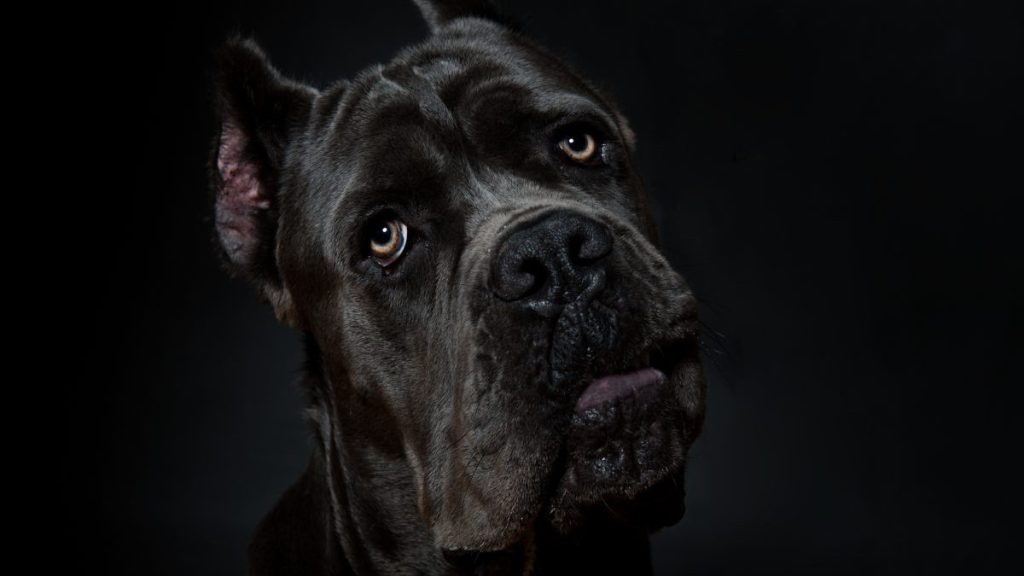The Cane Corso, a mastiff breed from Italy, are popular for their strength, agility, and imposing stature. When caring for your Cane Corso, prioritizing health is essential for ensuring their overall well-being and happiness. The CHIC (Canine Health Information Center), a program created by the Orthopedic Foundation for Animals (OFA), provides a centralized database for canine health information, particularly focusing on orthopedic and genetic conditions. Despite generally good health, they recommend several health screenings for Cane Corso due to potential predispositions to certain conditions.
After screening, the CHIC assigns a number to a dog’s test results. It doesn’t indicate normal results, just that all necessary tests were done and results made available. A CHIC report accompanies the number, detailing the tests, the dog’s age during testing, and the results. The CHIC program adjusts its requirements based on evolving breed health concerns, and existing CHIC numbers aren’t affected if requirements change. This number is also displayed on AKC documents, including Certified Pedigrees, Registration Applications, and Registration Certificates, signaling to potential puppy buyers and breed enthusiasts that recommended tests have been completed.
Importance of Canine Health Screenings

Getting health screening tests from breeders is extremely important for several reasons:
1. Identify health issues early – Issues like hip and elbow dysplasia, eye disease, cardiac disease and more can potentially be identified before any symptoms arise through screening tests. This gives the opportunity for early treatment.
2. Avoid propagating disease – Reputable breeders will screen their breeding stock and not breed diseased dogs. As a result, this helps avoid passing serious genetic conditions down to the next generations and propagating disease in the breed.
3. Improve the breed – Responsible breeding aimed at producing healthy pups should be the goal. By carefully selecting breeding dogs free of genetic disease through health testing, the overall health of the Cane Corso can gradually improve over generations.
Getting Cane Corso puppies from breeders who perform all the recommended health screenings for the breed provides the best chances of getting a healthy dog with a longer lifespan. Additionally, supporting responsible breeding practices through screening is crucial for the future welfare of the Cane Corso breed.
Recommended Cane Corso Health Screenings
According to the non-profit Orthopedic Foundation for Animals (OFA), here are the health screening tests required for the Cane Corso:
- Hip Dysplasia: Hip dysplasia involves abnormal hip joint development or degeneration, causing discomfort, lameness, and reduced mobility. Required testing options include OFA Radiographic Hip Evaluation and PennHIP Evaluation. Results are registered with OFA.
- Elbow Dysplasia: Elbow dysplasia is a common developmental orthopedic condition in dogs, particularly large and giant breeds. The condition also involves abnormal growth and formation of the elbow joint, leading to pain, lameness, and reduced range of motion. Required testing includes an OFA Radiographic Elbow Evaluation.
- Cardiac Evaluation: Testing requires a standard congenital cardiac exam. Results registered with OFA. Other options include advanced or basic cardiac exam.
- Patellar Luxation: Patellar luxation is a common orthopedic condition in dogs where the kneecap (patella) moves out of its normal position, causing lameness, pain, and difficulty in movement. Testing requires a veterinary evaluation of Patellar Luxation. Results are registered with OFA.
- Neuronal Ceroid Lipofuscinosis: Neuronal ceroid-lipofuscinoses (NCLs) refer to a group of inherited neurodegenerative disorders in dogs, characterized by abnormal accumulation of lipopigments in nerve cells throughout the body leading to progressive neurological dysfunction. Testing requires DNA-based NCL test results from an approved lab.
- Dental Retinal Skeletal Anomaly: DSRA, a hereditary disease in Cani Corsi, affects skeletal and dental development, causing brittle, discolored, or translucent teeth. The disease is also linked to progressive retinal degeneration. Testing requires DNA-based DSR test results from an approved lab.
Optional Cane Corso Health Screenings
- AVCO Eye Exam: ACVO eye examination testing is optional, but recommended. Results registered with the OFA.
- Autoimmune thyroiditis: Autoimmune thyroiditis is a disorder in which the immune system mistakenly attacks the thyroid gland. As a result, it can lead to inflammation and dysfunction. Autoimmune thyroiditis evaluation from an approved lab is optional, but recommended. Results registered with OFA.
- DNA Repository: A DNA repository is a centralized database where genetic material, typically in the form of DNA samples, is stored for research and breeding purposes. Participation in the OFA/CHIC DNA Repository (DNA Bank) testing is optional, but recommended.
Other general health screens recommended include blood count, chemistry panel, urinalysis, and fecal exam annually. It’s also important to remember that keeping up with these routine screening tests can help detect health issues early on in Cani Corsi. Reputable breeders will perform many of these tests before breeding their dogs.









